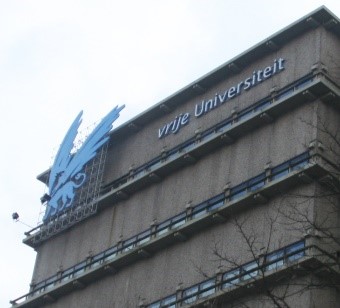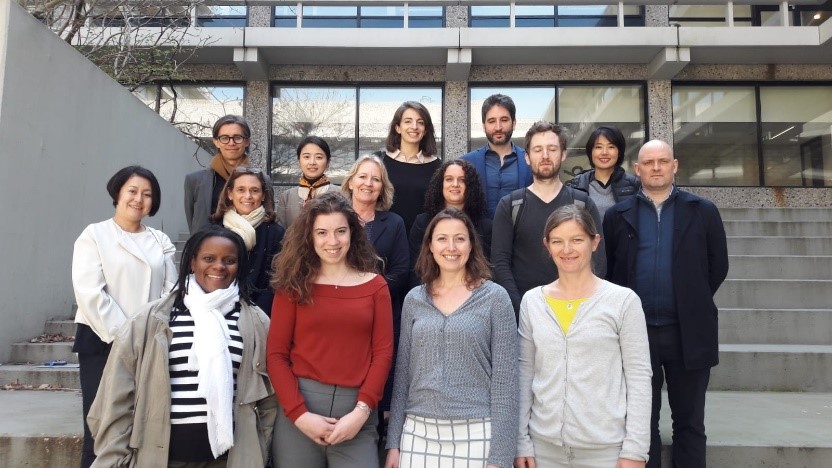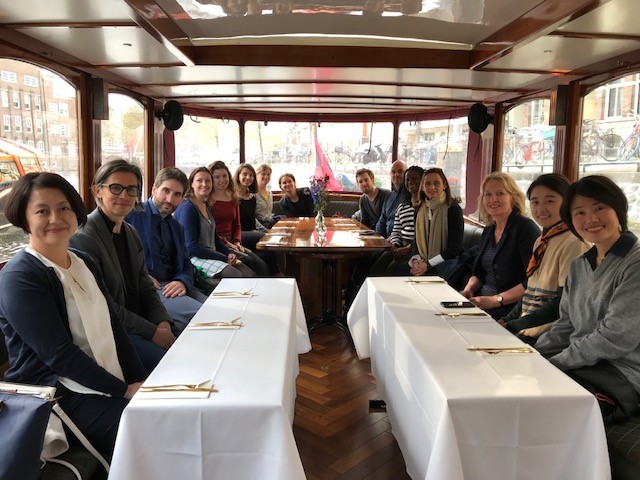
The four teams from the Netherlands, the UK, Germany and Japan met each other at the Vrije Universiteit. Important aims of the meeting were to get to know each other, to start on the work packages of the IN-CARE proposal and to plan meetings for the year to come.
The first afternoon was spent on work package 1: preparing a database on macro-level national indicators led by Ellen Verbakel (Team NL). Research assistant Lynn Colder had prepared a database with indicators of LTC services for care recipients and caregivers (e.g. number of beds in residential care, support for caregivers), cultural indicators (e.g. care norms) and country information (e.g. % GDP spent on care). These indicators are to be collected for all EU countries and Japan in the years 2008 – 2018. We discussed which indicators were missing, but, more importantly, how these indicators are to be classified on Saraceno’s index of (de)familialization. The aim of WP1 is to construct indices indicating familialism which can be used empirically in our longitudinal and cross-national analyses.

On the next day , participants of WP2 and WP3 [teams UK, NL, DE, Japan] and participants of WP4 and WP5 [teams UK and NL] discussed the content and organization of the WPs. Important topics were: Key concepts (SES, formal and informal care use and provision), hypotheses to be developed, methods to be used, and which data sets to use. Also, we agreed on the division of tasks, the time plan and the exchange of post-docs (Nekehia and Ginevra) and the PhD (Jens Abbing) to visit other country teams in 2020.

Socializing is also important, and we did so having dinner on a private boat through the lovely canals of Amsterdam .
The last day was spent discussing all kinds of practicalities, like the website, the stakeholder meeting planned for January, the use of a communication platform and which conferences to attend in 2020.
